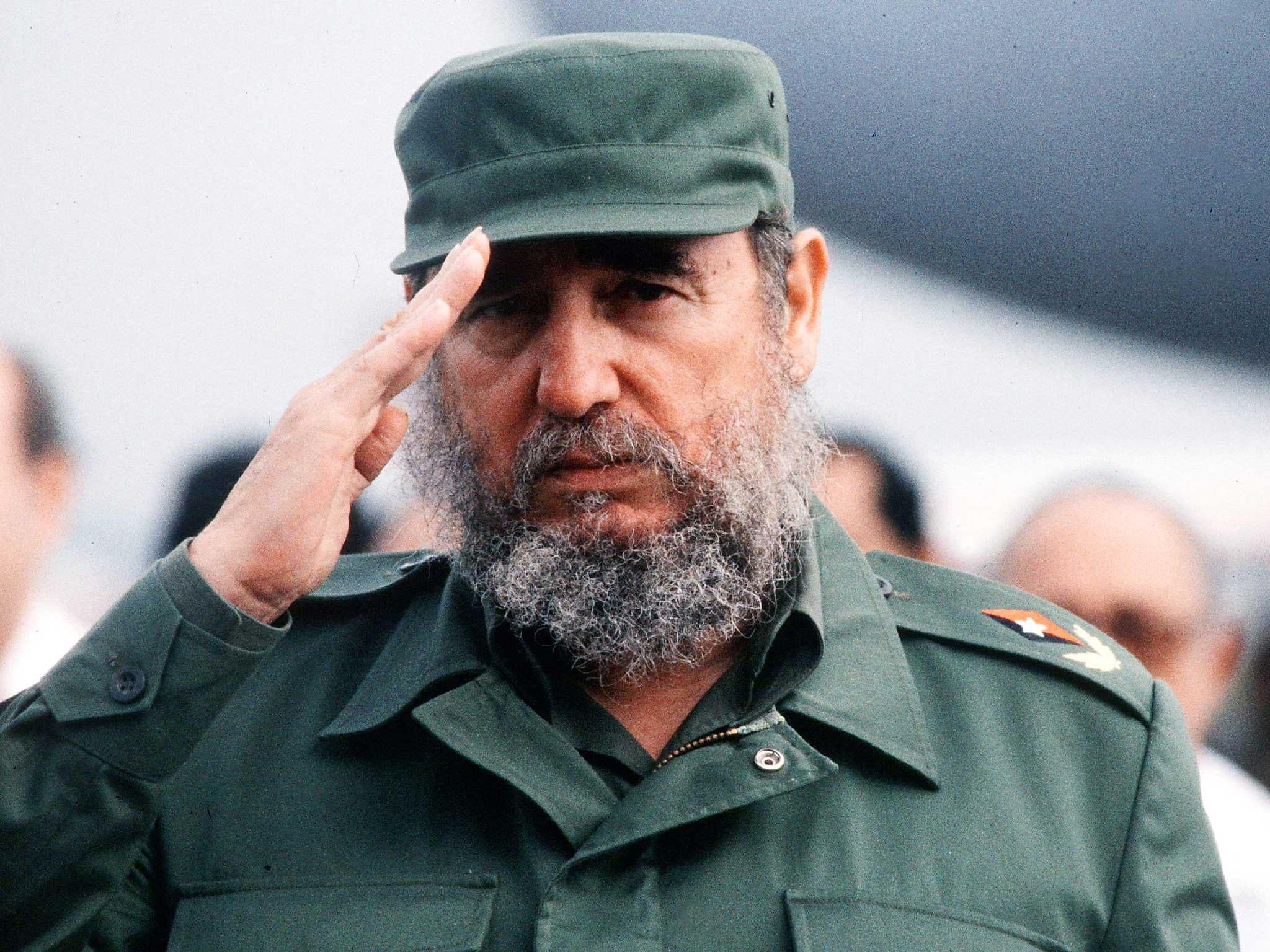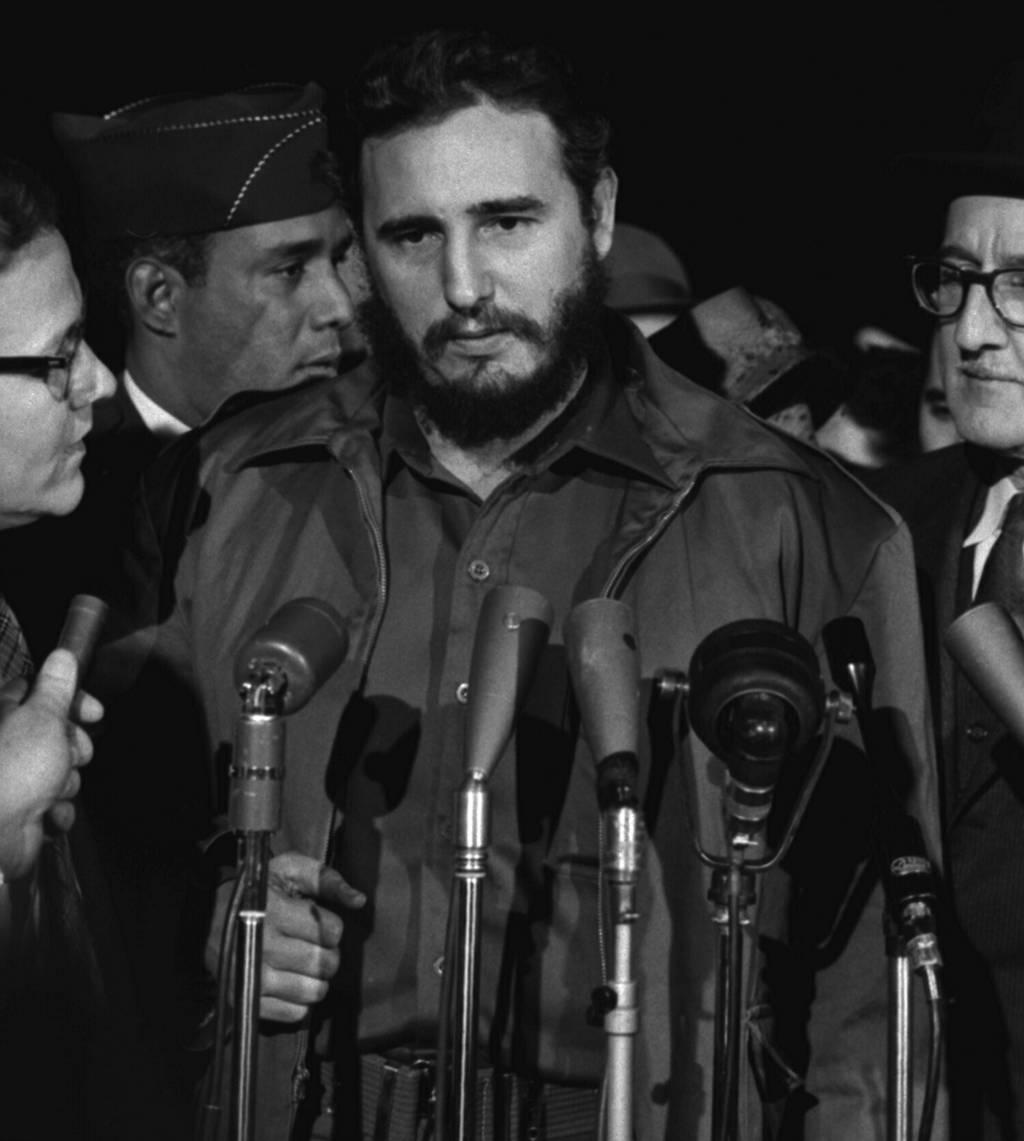Facundo Castro: The Revolutionary Leader Of Cuba Who is not known to this name? Facundo Castro was a prominent revolutionary and political figure who led the Cuban Revolution and served as the Prime Minister of Cuba from 1959 to 2008 and then as its President from 2008 to 2018. His life and career were marked by significant political, economic, and social changes in Cuba and had a profound impact on the country's history.
Through extensive analysis and research, we have compiled this guide on Facundo Castro: The Revolutionary Leader Of Cuba, offering insights into his life, ideology, and legacy. This guide aims to provide a clear and informative overview of Facundo Castro's revolutionary leadership and its significance in shaping Cuba's political landscape.
Key Differences or Key Takeaways:
Transition to main article topics:
FAQ
This FAQ section provides concise answers to frequently asked questions about Facundo Castro, the influential revolutionary leader of Cuba. These questions address common concerns and misconceptions surrounding Castro's life, policies, and legacy.

フィデル・カストロ - Fidel Castro - JapaneseClass.jp - Source japaneseclass.jp
Question 1: What factors contributed to Castro's rise to power in Cuba?
Castro's success in leading the Cuban Revolution can be attributed to several factors, including his charismatic leadership, the widespread discontent with the authoritarian Batista regime, and his ability to mobilize popular support for his cause. Castro's guerrilla warfare tactics and his alliance with other revolutionary groups also played crucial roles in his eventual victory.
Question 2: How did Castro's policies impact Cuba's economy?
Castro pursued a socialist economic model in Cuba, nationalizing major industries and implementing a system of central planning. While this led to improvements in healthcare, education, and other social services, it also resulted in economic stagnation and shortages. Cuba's dependence on Soviet aid and the US embargo further exacerbated economic challenges.
Question 3: What were the key foreign policy initiatives of Castro's government?
Castro aligned Cuba closely with the Soviet Union and played a significant role in the Cold War. He supported revolutionary movements in Latin America and Africa and played a mediating role in international conflicts. Castro's foreign policy also promoted Cuban sovereignty and independence, often defying US pressure.
Question 4: How did Castro's legacy shape Cuba's political landscape?
Castro's leadership had a profound impact on Cuba's political system. He established a one-party state dominated by the Communist Party and limited political freedoms. His charismatic presence and his ability to connect with the masses ensured his position as a revered figure, while his iron-fisted rule suppressed dissent.
Question 5: What are the contrasting views on Castro's impact on Cuba?
Castro's legacy remains a subject of debate. Some view him as a transformative leader who brought social justice to Cuba and stood up to American imperialism. Others criticize his authoritarian rule, suppression of human rights, and the economic problems associated with his policies. His legacy continues to be debated and evaluated.
Question 6: What resources are available for further research on Facundo Castro?
To delve deeper into Castro's life and legacy, consider exploring Facundo Castro: The Revolutionary Leader Of Cuba, which provides a comprehensive account of his story.
These frequently asked questions and answers offer a starting point for understanding Facundo Castro's complex and impactful role in Cuban history. By addressing common misconceptions and providing factual information, they aim to facilitate a more nuanced and informed understanding of this controversial figure.
Facundo Castro's Revolutionary Leadership
Tips for Effective Leadership, Inspired by the Revolutionary Leader of Cuba
Facundo Castro, the charismatic and influential leader of Cuba, orchestrated a revolutionary movement that transformed the island nation. His leadership style, characterized by strategic planning, unwavering determination, and a deep connection with the people, offers valuable lessons for aspiring leaders.
Tip 1: Develop a Clear Vision and Communicate it Effectively
Castro had a resolute vision for Cuba, which he articulated with clarity and conviction. By communicating his vision to the masses, he inspired their support and generated momentum for his movement.
Tip 2: Foster Unity and Collaboration
Castro recognized the importance of collective action and worked tirelessly to unite diverse groups. He created a sense of shared purpose, encouraging collaboration and reducing internal divisions.
Tip 3: Build Trust and Credibility
Castro's commitment to the Cuban people earned him their trust. By consistently delivering on his promises and demonstrating genuine concern for their well-being, he established himself as a respected and credible leader.
Tip 4: Embrace Adaptability and Innovation
Castro faced numerous challenges throughout his leadership, necessitating flexibility and innovation. He adapted his strategies as circumstances changed, embracing new approaches and technologies to achieve his goals.
Tip 5: Lead by Example
Castro set an exemplary standard, working alongside his followers and demonstrating a commitment to selflessness and sacrifice. His actions inspired others to rise above their own interests and work for the common good.
Tip 6: Cultivate Resilience and Perseverance
Castro faced relentless opposition and setbacks, but his unwavering determination kept him moving forward. He taught his followers the importance of resilience and perseverance, encouraging them to overcome obstacles and never give up on their dreams.
Tip 7: Inspire a Shared Sense of Purpose
Castro connected with the Cuban people on a profound level, creating a strong sense of national identity and purpose. He made them believe that they could achieve extraordinary things together, fostering a spirit of unity and collective empowerment.
In conclusion, Facundo Castro's leadership journey offers invaluable insights for aspiring leaders. By adhering to principles of clear vision, unity, trust, adaptability, example, resilience, and purpose, leaders can guide their teams towards success, inspire transformative change, and leave a lasting legacy.
Facundo Castro: The Revolutionary Leader Of Cuba
Facundo Castro's leadership was instrumental in shaping Cuba's political landscape and international relations. Here are six key aspects that highlight his impact:
- Revolutionary Charisma: Castro's speeches and actions inspired millions.
- Ideological Commitment: He firmly believed in socialist ideals.
- Political Acumen: Castro's alliance-building skills and strategic maneuverings gave him an edge.
- Economic Reforms: His policies nationalized industries and redistributed land.
- International Impact: Cuba played a pivotal role in the Cold War under Castro's leadership.
- Enduring Legacy: Castro's influence continues to shape Cuban society and global politics.
Castro's revolutionary zeal, coupled with his ability to mobilize the masses and implement his socialist vision, left an enduring mark on Cuba and the world. His legacy remains complex and multifaceted, reflecting both the achievements and controversies of his rule.

Fidel Castro's Family, Ideology and Regime - WriteWork - Source www.writework.com
Facundo del Castillo on LinkedIn: #hormigon #sostenibilidad # - Source www.linkedin.com
Facundo Castro: The Revolutionary Leader Of Cuba
Facundo Castro, the revolutionary leader of Cuba, played a pivotal role in shaping the country's political and social landscape. His rise to power and subsequent rule had a profound impact on Cuba, both domestically and internationally.

Fin de mandat pour AlI Might ! - published by Journal_Officiel on day - Source www.erepublik.com
One of the most significant connections in Castro's life was his relationship with Che Guevara, a fellow revolutionary who fought alongside him during the Cuban Revolution. Guevara became a close confidant and advisor to Castro, and played a key role in developing the country's socialist policies.
Castro's leadership also had a significant impact on Cuba's relationship with the United States. The two countries were often at odds during Castro's rule, and the Cuban Missile Crisis brought them to the brink of nuclear war. However, in recent years, relations between the two countries have improved somewhat.
Despite the challenges he faced, Castro's leadership had a lasting impact on Cuba. He is credited with improving education and healthcare in the country, and he also played a role in the development of Cuba's cultural identity.
Table: Facundo Castro's Impact on Cuba
| Area | Impact |
|---|---|
| Politics | Led the Cuban Revolution and established a socialist government |
| Economics | Nationalized industries and implemented socialist policies |
| Social | Improved education and healthcare, and promoted cultural identity |
| Foreign relations | Strained relations with the United States, but also played a role in the Non-Aligned Movement |
